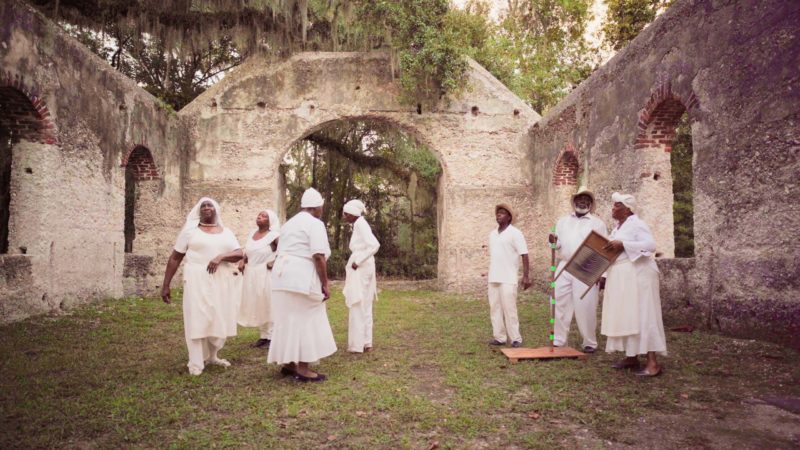Netflix’s ‘High on the Hog’ Retraces the Origins of Black Food Culture
Share
Explore Our Galleries
Breaking News!
Today's news and culture by Black and other reporters in the Black and mainstream media.
Ways to Support ABHM?

Host Stephen Satterfield on the importance of understanding food origins, the Black food movement, and his favorite filming locations.
By Kwin Mosby, Conde Nast Traveler
Last year energized a movement that demands the United States to recognize the pervasive social injustices against the African American community. It also provided underrepresented communities with an opportunity to tell their own stories and reclaim their place in American history. For food writer and sommelier Stephen Satterfield, the founder of Whetstone, a print magazine and media company dedicated to food origins and culture, that meant telling the origin story of African American food.
In Netflix’s High on the Hog: How African American Cuisine Transformed America, Satterfield starts in Benin—home to the Gate of No Return—where more than 1 million people unknowingly became part of the transatlantic slave trade. But the stories revealed in this four-part docuseries, based on Dr. Jessica B. Harris’ book, High on the Hog: A Culinary Journey from Africa to America, isn’t just about Benin and America’s unspeakable truths, it’s about how African food and traditions were transported to America, and how this culinary legacy continues to thrive in various U.S. food scenes, including Charleston’s Gullah country. Throughout the series, Satterfield learns about local food origins and historic African American contributions to popular American food staples like mac-n-cheese—and invites viewers to witness communal meals with chefs, cultural preservationists, culinary historians, and entrepreneurs, who discuss the resilience of a people and the ingenuity of cooking techniques used to prepare the food placed in front of them.
“I think a lot about food—how it connects us through time, across geography, from generation to generation,” says Satterfield in the first episode. “It tells stories about where we’ve been, where we are, and where we’re going.” We sat down with him ahead of the show’s May 26 premiere to talk about why the story of this culinary visual pilgrimage, steeped in American history, needed to be told…
Read the full article here
Learn more about Black Food Culture and Tradtions here and here
More Breaking News here.









Comments Are Welcome
Note: We moderate submissions in order to create a space for meaningful dialogue, a space where museum visitors – adults and youth –– can exchange informed, thoughtful, and relevant comments that add value to our exhibits.
Racial slurs, personal attacks, obscenity, profanity, and SHOUTING do not meet the above standard. Such comments are posted in the exhibit Hateful Speech. Commercial promotions, impersonations, and incoherent comments likewise fail to meet our goals, so will not be posted. Submissions longer than 120 words will be shortened.
See our full Comments Policy here.